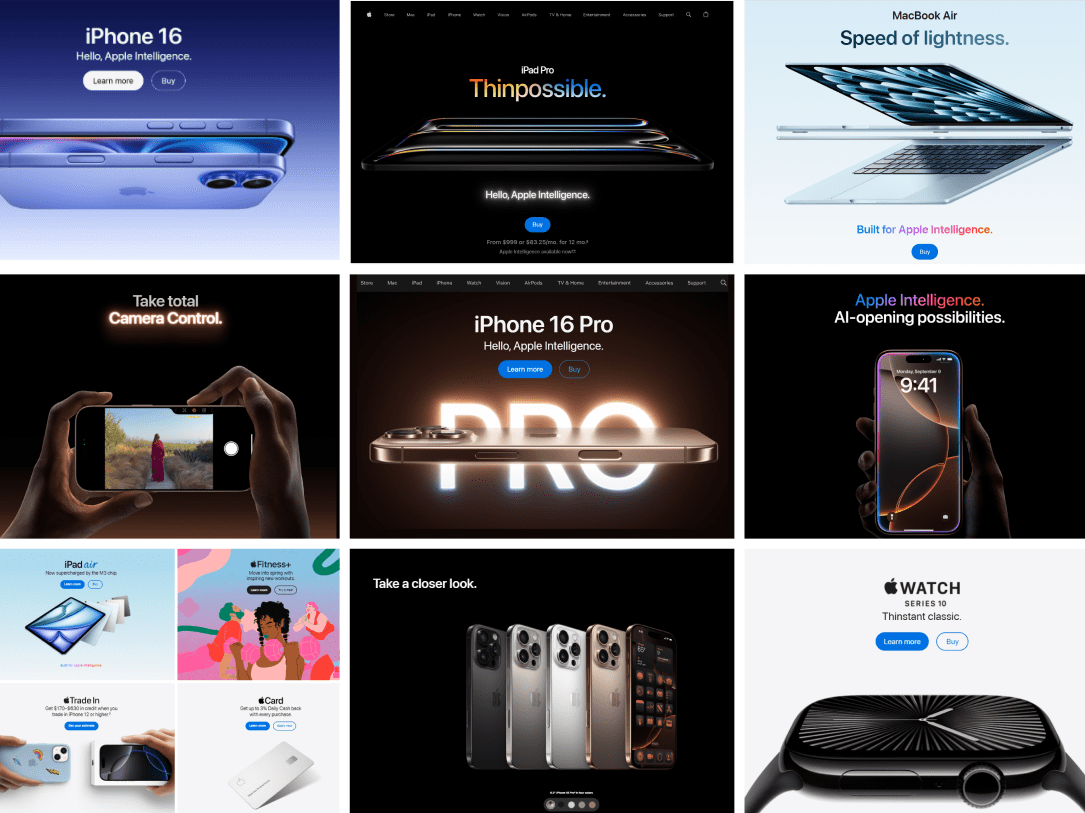

How B2B Social Media Marketing Works in 2022
Thanks to social media, every brand–including yours–can live closer to customers than ever before.
Direct-to-consumer brands in particular have been able to leverage smart social marketing to accelerate sales, growth, and awareness in ways that were often impossible or cost-prohibitive through older mediums like TV and radio. In fact, the combined mobility and real-time engagement that is possible with online social communities has helped make social media the core and focus of many successful B2C digital marketing strategies today.
What about social and B2B? With longer sales cycles and less obvious roadmaps for success, determining which B2B social media strategy will produce the best results is a different ball game. According to a survey by The Manifest, nearly a quarter (24%) of respondents said the biggest challenge their B2B business faced with social media was not having a formal strategy.
That's costing them money, according to the numbers. More than half (52%) of those B2B companies surveyed say social media has helped increase their revenue and sales. That ROI is only expected to increase moving forward as more B2B brands perfect and evolve their social strategy.
If you’re a B2B company and you want to understand how you can reap similar rewards with an effective B2B social marketing strategy, you’ve come to the right place (and if you're looking for help right away, remember we offer social media marketing as a service).
Setting Goals for B2B Social Strategy
Before you start developing your social media strategy, it’s important you take time to define your goals for it.
What are the outcomes you want? What are you trying to achieve through social media?
For B2B companies, the most important KPI and answer to these questions is obvious: Generating leads. So start there and work backwards.
Who are your ideal leads? On which social networks do they likely spend their time? These are basic questions that will help you decide which social media networks and content to prioritize.
Leads are the ultimate goal, but there are other related goals. Social media can impact all your marketing KPIs across the customer lifecycle, and even across multiple channels, through integration with your website blog, email campaigns, display advertising, PPC ads, and more.
Break down the opportunities for your social media marketing that occur both before and after a prospect becomes your customer:
- Grow Brand Awareness – Measurable reach and audience targeting capabilities of social media networks help you ensure that more prospects see and get to know your brand.
- Build Engagement – You can generate more high-quality marketing qualified leads (MQLs) through social content that nurtures prospects through the sales funnel.
- Drive Conversions – Generate ongoing sales requests from new and existing customers, and gain email subscribers to build your contact database.
- Brand Advocacy – Receive positive online reviews and referrals from happy customers via social media.
"People-first" Social Media
Consumers have gained more control over their own journey to purchase, which means brands and advertisers need to do a better job of identifying and reaching the right audience at the right moment. When it comes to social media, executing a “people-first” strategy means capturing your audience’s attention on the right social networks with the right message.
This is an extension of people-first marketing, an approach that focuses on personalizing customer touchpoints across offline and online marketing channels to drive engagement and maximize campaign performance. People-first thinking acknowledges the reality that the proliferation of digital channels, devices, and platforms have led to a vast shift in consumer behavior and expectations for both B2B and B2C companies. Gone are the days where advertisers can send out generic mass-marketing messages aimed at everyone–which in reality, cater to no one.
Instead, understanding who your specific target audiences are–their needs, wants, and pain points–helps put each individual customer at the forefront of your marketing strategy. That's why the first step in achieving a people-first marketing strategy is to define who your customers are. The goal is to segment different customers into smaller groups so you can more effectively tailor each marketing message for each target audience.
Start with socio-demographics like age, gender, ethnicity, and marital status, which illustrates “who” your buyers are. Then go beyond demographics and think about psychographics like personalities, values, interests, and lifestyles, which illustrates “why” they buy from you. A common practice is to create a list of buyer personas, which detail your existing and customer’s demographics, psychographics, and behaviors as well as potential customers that you’d like to work with in the future.
Let's Talk
Establishing Voice and Tone
When deciding on what voice you want your B2B brand to have in its social media marketing, you can’t help but consider the tone as well. The two go hand-in-hand, and are often used interchangeably, yet they apply in slightly different ways:
- Voice – Your brand personality described in an adjective. For instance, brands can be lively, positive, cynical, or professional.
- Tone – A subset of your brand’s voice. Tone adds specific flavor to your voice based on factors like the audience, campaign, and marketing channel.
Essentially, there is one voice for your brand and many tones that refine that voice. There are additional aspects that affect both voice and tone:
- Character / persona – Who does your brand sound like? If you picture your social brand as a person, here is where you can flesh out this identity with specific attributes that fit who you want to sound like online.
- Disposition – What is the general "vibe" of your brand?
- Language – What kind of words do you use in your social media conversations?
- Purpose – Why are you on social media in the first place?
Together, these four areas can help define the overall voice of your brand to support your social media strategy. It’s a helpful exercise to go through these steps to gain insight into each area, and as you’ll see below, the process for determining your social media voice includes many of these same ideas and parts.
Remember: Social Media Should Be Personal
Market your B2B brand as if you were marketing a person, someone with–that's right–personality! Of course the type of personality that's best for you will vary based on what draws rather than alienates your audience, but the point is to have an identity that your prospects can connect with.
Let's face it, most B2B companies have a reputation for being generic and stuffy, rather than unique and compelling. Therefore, B2B organizations that market through social media with the perspective of an individual who brings something fresh and exciting to the table can gain a big advantage.
In practice, this would look similar to how individuals—contractors, freelancers, consultants, me and you—run a social brand. These individuals communicate with fans and followers on a one-to-one basis. They're flexible and spontaneous.
There’s no reason why B2B solutions providers cannot market the same way. Everything an individual can do, a smart and capable B2B company can do also. Thinking from this perspective opens up a variety of options for your social media voice.
Targeting Social Posts
For B2B brands that are already active on social, existing social media analytics related to your followers–geographies, demographics and other interests–should give you a good idea of the best targeting strategy for your posts on various social media platforms.
If your B2B business has not yet ventured into social media, there is more research to do and consider. With all the social media channels out there, how do you decide which ones are right for your business?
How B2Bs Use Popular Social Networks
Many B2B companies are already using social media to grow their following and awareness while also driving leads and sales. The top social media platforms currently being utilized for B2B marketing success include:
- LinkedIn - By far the dominant social network among business professionals, LinkedIn helps B2B companies establish credibility, promote thought leadership, and actively participate in industry groups and communities; the audience is more receptive to business pitches, because they expect that content when they sign on.
- YouTube - Google’s vast and popular network of published video content is easily searchable and supports organic lead generation when videos show up in SERPs, and also by funneling YouTube audiences to your website from your video posts; in B2B, video can be leveraged any number of ways–from tutorials and explainers, .
- Twitter - The real power of Twitter is in its relevance to real-time news and events, making it particularly useful for B2B companies seeking to attract organic traffic “in the moment” at conferences or trade shows.
- Facebook - While Facebook’s user base has plateaued in recent years, and its content is typically more lifestyle-oriented than business-related, its presence as a social media monolith cannot be ignored, even by B2B brands.
- Instagram - B2B brands that can effectively market themselves through visual-based media can benefit from posting videos as Instagram Stories and photos as Image Carousel features. Stories have the added benefit of being able to direct viewers to a specific URL where they can convert, whereas image posts do not contain live links.
Newer and emerging social networks like TikTok are gaining huge audiences, but have positioned themselves as more of a platform for engaging the B2C market. With that said, while networks like TikTok may not presently seem to fit with B2B businesses, that simply means there's a big opportunity there for B2B brands that are able to experiment and figure out a way to leverage that audience for growing brand awareness and generating interest that leads to sales.
Need a B2B Social Media Agency?
After specializing in B2B marketing for over 20 years, DBS has learned a lot about how social media delivers results for our clients. Our integrated campaigns for B2B brands like Kao Collins have led to measurable and impactful success by growing awareness, bringing more prospects and organic traffic to the website, and generating qualified leads.
If you'd like to know more about how we can help your B2B business achieve the same results through social media marketing, contact our team and set up an introductory call so we can learn more about what you're looking for and explore how DBS can get you there.




